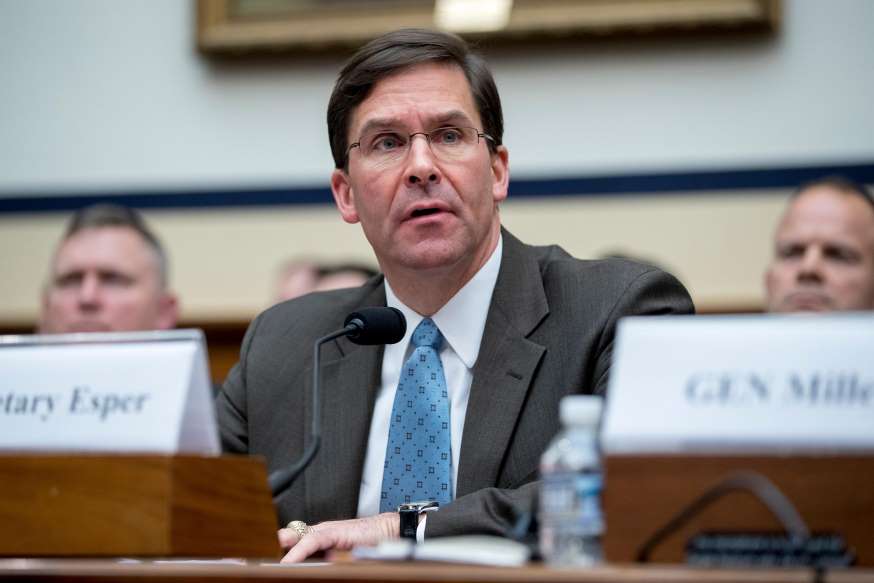Defense Secretary Mark Esper effectively banned the display of Confederate flags from military bases amid a nationwide reckoning over racism and the display of Confederate symbols.
In a two-page memo to military commanders and senior Defense Department leaders, Esper said “the flags we fly must accord with the military imperatives of good order and discipline, treating all our people with dignity and respect, and rejecting divisive symbols.”
Esper listed as appropriate for display state flags, the POW/MIA flag, military service flags and flags of countries allied with the United States. The Confederate flag was absent from the list.
The guidance applies to all public displays of flags in “Department of Defense work places, common access areas, and public areas,” Esper wrote.
“With this change in policy, we will further improve the morale, cohesion, and readiness of the force in defense of our great Nation,” he concluded.
Esper’s decision comes just days after President Donald Trump defended those who fly the Confederate flag.
“Like it, don’t like it. It’s freedom of speech.” Trump said in an interview with CBS News. When the reporter noted that it’s a painful symbol of slavery for many African Americans, Trump responded: “I know people that like the Confederate flag, and they’re not thinking about slavery.”
The White House did not respond to a request for comment.
Esper’s memo did not address military bases named after Confederate generals.
The Defense Secretary’s decision may widen a rift between the White House and the Pentagon over the potency of Confederate symbols and how the military should address its legacy of racism at a time when Americans are reexamining race relations.
Nationwide protests and calls to remove Confederate symbols and other symbols of racial intolerance erupted following the death of George Floyd, a Black man who died when a white Minneapolis policeman knelt on his neck for nearly nine minutes.
Rhode Island Sen. Jack Reed, the top Democrat on the Senate Armed Services Committee, applauded Esper’s decision but said the Pentagon needed to go further.
“Banning the flag is easy and must be followed with the more difficult task of eradicating racism, prejudice, sexism, and all forms of discrimination from the ranks,” Reed said. “The military is engaged in serious, meaningful self-examination, action, and reform to address these challenges.”
In June, lawmakers in Congress advanced a proposal to strip the names of Confederate generals from bases, buildings, planes, ships and even streets within three years. Esper and Army Secretary Ryan McCarthy had also previously indicated their willingness to rename bases that honor Confederate generals.
Testifying before lawmakers earlier this month, Chairman of the Joint Chiefs of Staff Mark Milley told lawmakers he viewed the Confederacy as an “act of treason” and had asked a commission to look into the renaming of bases and the removal of statues and symbols.
“The way we should do it matters as much as that we should do it,” he said.
But Trump quickly rejected the push to rename military bases in a series of tweets last month.
“These Monumental and very Powerful Bases have become part of a Great American Heritage, and history of Winning, Victory, and Freedom,” he tweeted on June 10.
And in a July 1 tweet, he threatened to veto a massive defense bill if a provision removing the names from bases was included.
Republican lawmakers, however, shrugged off Trump’s threat at the time and signaled their openness to changing the base names.
“I would support changing the names of bases that were named in the honor of Confederate generals. Those individuals fought against the United States of America and we should instead be honoring people who fought for the United States of America,” Sen. Mitt Romney, R-Utah, told reporters in the Capitol at the time.
Sen. Marco Rubio, R-Fla., told reporters he believed there should be a “process” to remove the names, but “I don’t think the name of a facility should be something that’s divisive or offensive to people, especially if there are better alternatives.”
MSN

